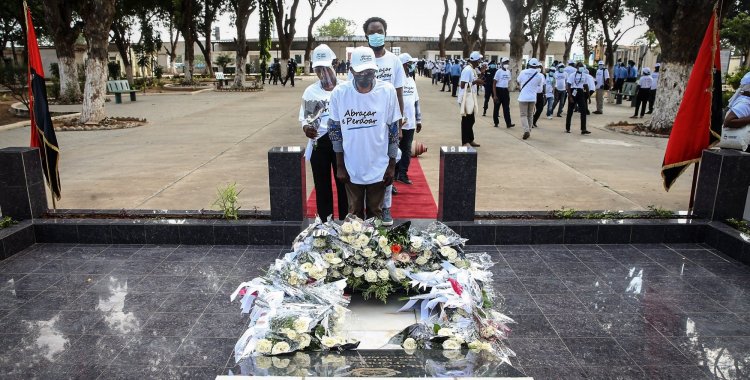The statements by Adalberto da Costa Júnior, president of the party, to Lusa, come a day after orphans from the 27 de Maio (M27 Association) denounced that the bones given to them do not match the DNA of their relatives, killed in the repression that took place followed the alleged coup d'état on May 27, 1977.
The leader of the National Union for the Total Independence of Angola (UNITA) underlined that the matter has been followed "with a lot of involvement" over the years and indicated that the Reconciliation Plan in Memory of the Victims of Political Conflicts was mainly aimed at the 27th of May, a "subject that burns the hands of the MPLA [Popular Movement for the Liberation of Angola], which never had the courage to come and render public accounts".
He also added that there had already been talk of the possibility that some of these bones did not correspond to the victims: "Some of those involved had brought us this problem that we had seen with great concern, insofar as, if confirmed, it calls into question the transparency of this act. We ourselves [relatives of UNITA victims] were at a given moment in a situation similar to this".
In November 2021, the Government delivered the remains of two UNITA leaders - Salupeto Pena and Alicerces Mango - killed in the 1992 post-election conflicts in Luanda, an act that for family members and political leaders symbolized reconciliation.
UNITA and MPLA, party in power since 1975, fought a long civil war that lasted almost 30 years.
"UNITA did not go to verify the veracity of the bones it received. We had a very large debate around this matter and we came to the conclusion that it was better to embrace the gesture, the act, even if this involved the risk of the bones not corresponding, for that what was at stake was much broader, it is in fact also possible to demonstrate that Angola needs to reconcile", Adalberto da Costa Júnior told Lusa.
The leader admitted that "there will not always be the total, effective, transparent truth", but stressed that UNITA wanted to give "its share" and that the families also aligned with this purpose.
"It's not worth going looking for this issue, it's more suffering (...) it's better to pass over this matter", he justified.
He left, however, some criticisms of the way the process took place.
"It was not doctors who made the delivery, it was people from the intelligence services", he said, stressing that it should go through other State institutions and not be "always the State security structures involved where it does not concern them".
"We are going to learn from these practices and do better in the future. The country's reconciliation is an effective need and we need to give our share, our contribution, but without being naive, we know the country we have", he stressed.
In a "letter to Angola", the orphans of the 27th of May denounced, on Thursday, the "propaganda machine" of the Government and CIVICOP - Commission for Reconciliation in Memory of the Victims of Political Conflicts, when carrying out funeral ceremonies and handing over bodies "in widely televised public ceremonies on the eve of presidential elections".
Last year, the Government held funerals for Alves Bernardo Batista "Nito Alves", Jacob Caetano João "Monstro Imortal", Arsénio Lourenço Mesquita "Sihanouk" and Ilídio Ramalhete, victims of the alleged coup d'état on 27 May 1977.
In the place where these bones were found, would also be those of José Van-Dunem and Sita Vales, a young couple of leaders of the Popular Movement for the Liberation of Angola (MPLA), who were murdered during the repression that followed, but their relatives required new forensic examinations, and a team of Portuguese specialists went to Luanda, led by the former president of the National Institute of Legal Medicine and full professor at the Faculty of Medicine of the University of Coimbra, Duarte Nuno Vieira.
According to the orphans, "it was with astonishment and pain" that "after carrying out the tests, it was concluded that none of the samples correspond to the corpses of the parents".
On 27 May 1977, an alleged attempt at a coup d'état, in an operation allegedly led by Nito Alves - then former Minister of the Interior from independence (11 November 1975) until October 1976 - was violently repressed by the regime of Agostinho Neto, the first President of Angola, causing an undetermined number of deaths.
In April 2019, the President ordered the creation of a commission (the CIVICOP), to draw up a general plan to honor the victims of the political conflicts that took place in Angola between November 11, 1975 and April 4, 2002 (end of the war civil).







